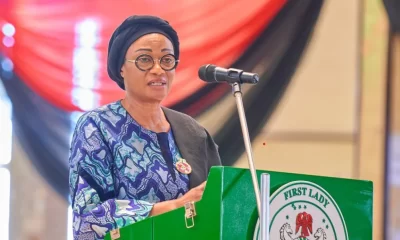Stakeholders have fine tuned a bill to establish the Lagos State Institute of Legislative Studies to further boost human capital development in the state.
The institute once established will take charge of the responsibility of conducting quality academic and professional research, training and advocacy on democratic governance, legislative practice/procedure and for connected purposes
Commenting on the relevance of the bill, the Director of the National Institute of Legislative and Democratic Studies, Abuja, Dr. Shuaib Danwaka who was the guest speaker at the event, said that the institute is predicated on the need to provide training for lawmakers and legislative staff.
While commending the assembly for following the footsteps of the federal government, Danwaka said that democracy is sustained through capacity development.
“The bill is to establish the institute that would provide capacity so that the assembly would be able to discharged it’s duties of law making and oversight.
“The duties of the legislature cannot be discharged without capacity. With the institute the capacity of the legislature and staff is guaranteed and it will go beyond Lagos and Nigeria,” he said.
The scholar however, made some observations about the bill and advised that such should be effected in the proposed bill.
According to the bill, the institute would act as a centre of excellence for research and publication on
democratic governance and legislative practice and procedures;
It added that it would be a centre for continuing education on democracy and legislation;
“Conduct courses for all categories of Legislative officers and the support staff with a view to expanding their overall knowledge and performance in different sections of service;
“Provide continuing education for all categories of legislative officers by undertaking, organising, conducting and facilitating studies, courses, lectures, seminars, workshops, conference and other programmes related to Legislative education;
“Promote and disseminate among legislative assemblies and Local Governments in the State the practice of science based methodologies of law-making,” the bill read.
It was added that the institute would disseminate by way of publication of books, journals, records, reports or other means of information regarding its activities subject to the approval of the Board;
The institute would also promote and protect constitutional due process in legislative practices and encourage private sector participation and collaborate with national and international organisations on research and training on issues relevant to its mandate;
It was recommended that the institute shall also have powers to conduct periodic short and refresher courses for National and State legislators, staff, committee secretaries and political aides on democracy and good governance;
It will also provide research reports for legislation for the House of Assembly, their committees or the Legislative Drafting and Legal Services of the House of Assembly.
The Council of the institute includes; the Speaker as Chairman or at his instance the Deputy Speaker and five serving Honourable Members from the five (5) Divisions of the State, nominated by the Speaker.
Others are the Chairman, House of Assembly Service Commission, Clerk to the House of Assembly; and the Director-General of the Institute as a Member/Secretary.
According to the bill, members of the Council other than the ex-office members shall hold office for a term of four (4) years and may be eligible, for re-Council.appointment for another term of four (4) years only.
It was stated that a member of the Council may resign from the appointment by giving one (1) months’ notice in writing addressed to the Speaker and the membership shall cease on the date of the resignation.
“The Speaker may remove any member of the Council if satisfied that it is in the interest of the public to do so
“Allowances of the 11.Members of the Council may receive allowances as are applicable.”
In his keynote address, the Speaker of the House, Rt. Hon. Mudashiru Obasa said that it was the tradition of the House to organize stakeholders meeting before any bill is passed into law.
Obasa, who was represented by his Deputy, Hon. Wasiu Sanni-Eshinlokun recalled the establishment of the Institute for Legislative and Democratic Studies by former president Good luck Jonathan in 2011, which he said was the first in Africa.
He added that Lagos State was replicating this to enhance good governance.
Earlier in his welcome address, Chairman of the House Committee on Education, Hon. Ganiu Okanlawon, said that the public hearing was aimed at involving relevant stakeholders and members of the public.
He said that the institute would provide education for lawmakers and all kinds of legislative officers through seminars, workshops, conferences and other kinds of training.
This was corroborated by the Chairman of the House Committee on Tertiary Education, Hon. Owolabi Ajani, who said that the assembly would do what was expected of it before the bill is passed to the Governor for his assent.
The overview of the bill was done by the Leader of the House, Hon. Sanai Agunbiade, who said that the legislature is the major arm that differentiates a democratic government from a military government

 Entertainment6 days ago
Entertainment6 days ago
 Entertainment3 days ago
Entertainment3 days ago
 Comments and Issues6 days ago
Comments and Issues6 days ago
 Business7 days ago
Business7 days ago
 Comments and Issues6 days ago
Comments and Issues6 days ago
 Health1 week ago
Health1 week ago
 Editorial Opinion1 week ago
Editorial Opinion1 week ago
 Health5 days ago
Health5 days ago

